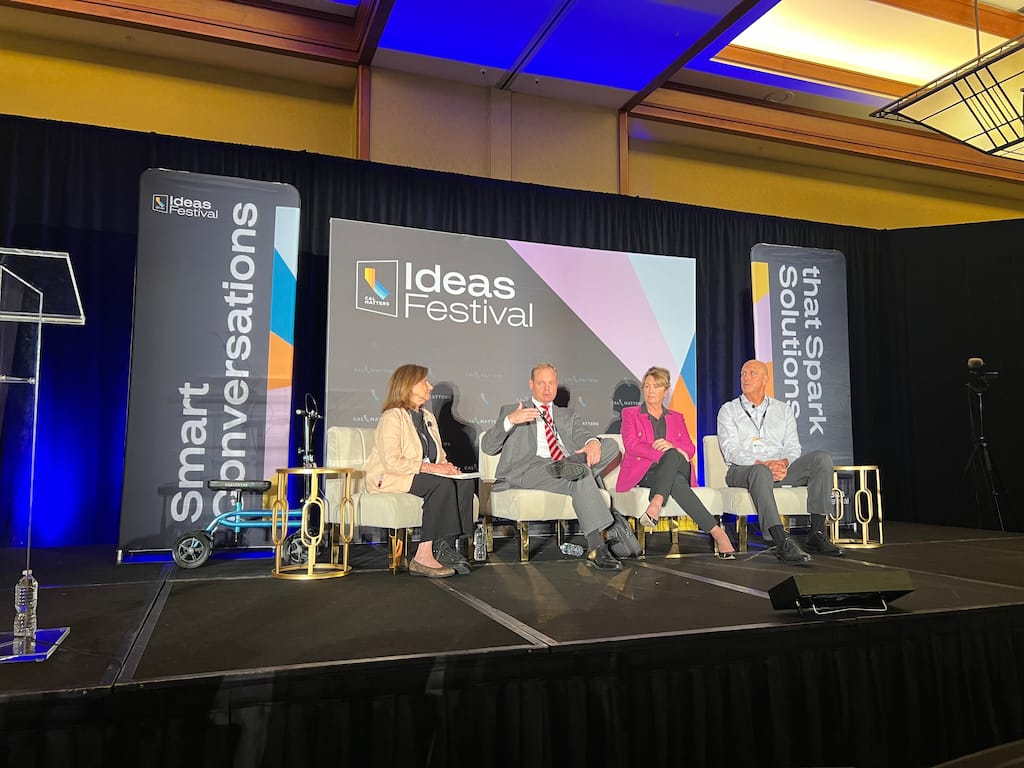California Middle-Mile Initiative Prioritizes Connecting Local Grant Applicants
The $3.8-billion program's director said 107 grant applicants intend to connect to its infrastructure.
Jake Neenan

SACRAMENTO, June 6, 2024 – California’s state-funded middle-mile project is facing a funding shortfall after the governor’s office rescinded promised money last month. Ensuring the project doesn’t leave behind communities looking to build local networks on that infrastructure is the program’s “highest priority,” its director said on Wednesday.
See all the videos:
 Broadband BreakfastBroadband Breakfast
Broadband BreakfastBroadband Breakfast
“Of almost 500 [last-mile] grant applications that were submitted, I think 107 have indicated their intention to tie to the middle-mile broadband project,” Middle-Mile Broadband Initiative Director Mike Monroe said. “That’s really my highest priority, is to be able to reach those locations.”
He spoke at the California Broadband Summit, hosted by Broadband Breakfast and CalMatters.
The program, with a budget of more than $3.8 billion, won’t be able to fund the 10,000 miles of fiber-optic cable it had originally planned. Gov. Gavin Newsom proposed a budget in January that would have provided an extra $1.5 billion on top of that to fully fund the project, but a new proposal the governor’s office put forward last month – and which the state legislature has to approve by June 15 – omits the additional money.
For some communities and companies that applied for broadband expansion grants from a separate state program before the middle-mile shortfall was even known, projects that would depend on that infrastructure could be in jeopardy.
The Santa Ynez Band of Chumash Indians, for example, applied for $4.7 million in state funding to build a fiber network that would connect 303 locations in and around the Tribe’s reservation. The project would tap into MMBI infrastructure to connect those homes and businesses to the internet backbone.
“We’re several grants in to build fiber to the premises for the reservation and other Tribal land,” a representative from the Tribe said. “But if the middle-mile doesn’t come, we won’t be able to do anything.”
Barbara Hayes, chief economic development officer at the Rural County Representatives of California, said the organization helped rural counties submit 37 applications for last-mile grant funding from the state. All but one is dependent on connecting to the MMBI infrastructure.
The one that chose not to plan around the future MMBI build, citing uncertainty amid the funding shortfall, was Nevada County, a county of about 100,000 people in northern California.
“The head of general services with whom I was working in Nevada County pulled the plug and said, ‘No, no, we’re going with a known rather than an unknown,’” Hayes said. The county is planning to hook onto existing private-sector middle-mile rather than the state’s open-access build.
The projects are just applications at this stage. The state has yet to approve any grants for its $2 billion last-mile grant program.
 Broadband BreakfastBroadband Breakfast
Broadband BreakfastBroadband Breakfast
David Beaulieu - a telecom consultant at Tilson, a technology management firm working with the state on both the middle-mile project and the last-mile projects that RCRC is assisting counties in pursuing - said he’s feeling optimistic about California’s buildouts despite the scale of the task.
“I’ve been on some fairly significant, large infrastructure projects in my career,” he said. “This one probably has the most pieces to it. It’s been fun.”
Trish Kelly, managing director of Valley Vision, a regional nonprofit civic leadership organization serving the Sacramento Capital Region, moderated the panel discussion.









Member discussion